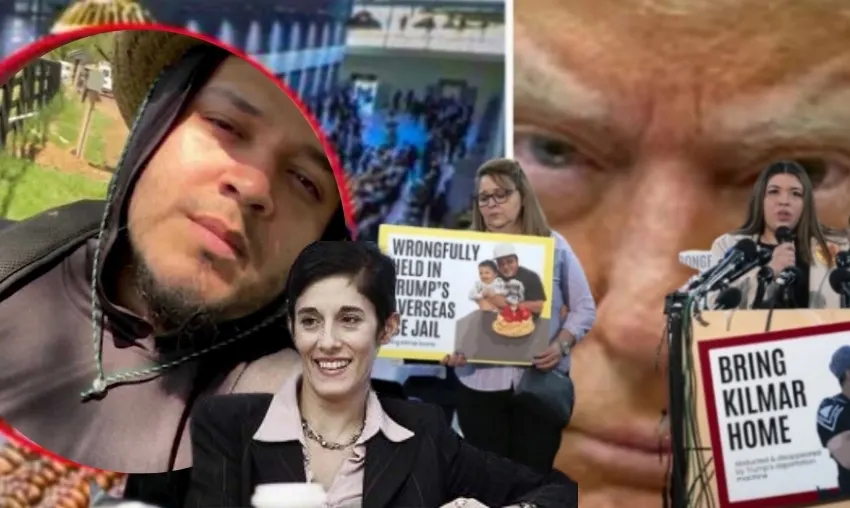It was a day full of fractures, a day when the veil of power was lifted to reveal the naked failure of a government. The United States, a nation of laws, had deported a man it should never have deported. Kilmar Abrego Garcia, a Salvadoran citizen residing in Maryland. Kilmar Abrego Garcia was born in 1995 in San Salvador, the capital of El Salvador. He is a Salvadoran citizen. At the age of 16, he fled the country due to threats from the Barrio 18 gang and sought refuge in the United States. He settled in Maryland, married a U.S. citizen, and started a family. Despite being under a court order that protected him from deportation, he was mistakenly removed to El Salvador in March 2025, an act the Trump administration later described as an “administrative error.”
But the Trump administration ignored the rule of law, removed the man to El Salvador, and then pretended there was nothing more it could do.
The Supreme Court of the United States has now brought this fiction to an end. In a clear voice and against the will of the government, the justices ruled: Kilmar Abrego Garcia must be brought back. The decision came after a dramatic legal tug-of-war that, in its starkness, is nevertheless historic. Because it reminds us that power is not the same as arbitrariness, and that even a presidential decree is not immune to the law.
The Trump administration pushed back, arguing that retrieval was no longer possible. But a panel of the Fourth Circuit Court of Appeals, consisting of Stephanie Thacker, Harvie Wilkinson III, and Robert King, stripped away even that final fig leaf. The courts, they affirmed, do indeed have the power to impose limits on the executive when it violates the law.
And suddenly, the law stood again. Not as an abstract concept, but as a concrete act. As an order, a duty, a promise that not all is lost.
The decisive role was played by U.S. District Judge Paula Xinis. She had ordered Abrego Garcia’s return after it became known that he had been deported despite an existing protective injunction. Chief Justice John Roberts briefly paused the order to give the court time to review the case. But now it is clear: the law does not remain silent.
What unfolded in the courtroom was only part of the story. While the government argued it no longer had the means to bring Abrego Garcia back, conversations, investigations, and phone calls were taking place out of public view. We split up, some of us traveled to El Salvador, others worked from the U.S., speaking with activists, attorneys, human rights organizations. We found witnesses, reviewed records, established contacts. It was a day of struggle, a day of rage, a day of waiting, until the decision finally came.
The Supreme Court is now demanding not only clarification of the court’s order, but also concrete information on what steps have already been taken to facilitate the return. The government can no longer hide behind technocratic helplessness. It has the duty to correct its mistake.
This case is more than an isolated incident. It is an example of how the Trump administration treats legal boundaries: with ignorance, with strategy, with calculation. Kilmar Abrego Garcia was not merely wrongfully deported, he was dehumanized, reduced to a statistical footnote, while he now fears for his safety in a notorious Salvadoran prison. The government claims he is a member of MS-13, but there are no charges, no conviction, no evidence.
This is not the first time people under Trump have become pawns in an ideological deportation policy. But today, the law has spoken. And today, it has won. The ruling is a glimmer of hope for those who believe the Constitution is more than decoration. That justice is not just a word, but a right.
Perhaps Kilmar Abrego Garcia will not return immediately. Perhaps the government will continue to delay. But the ruling stands. It says: You took him. You must bring him back.
It is a message to all who believe power is greater than law. And to the millions who live in the shadow of this policy, deported, forgotten, stripped of their rights. On this day, the law has spoken. And that means more than it may seem.
Because a country that does not acknowledge its mistakes is not a state of law.
But a country that tries to heal its mistakes, even against the obstinacy of its government, offers hope. Not just to Kilmar Abrego Garcia. But to all of us.
